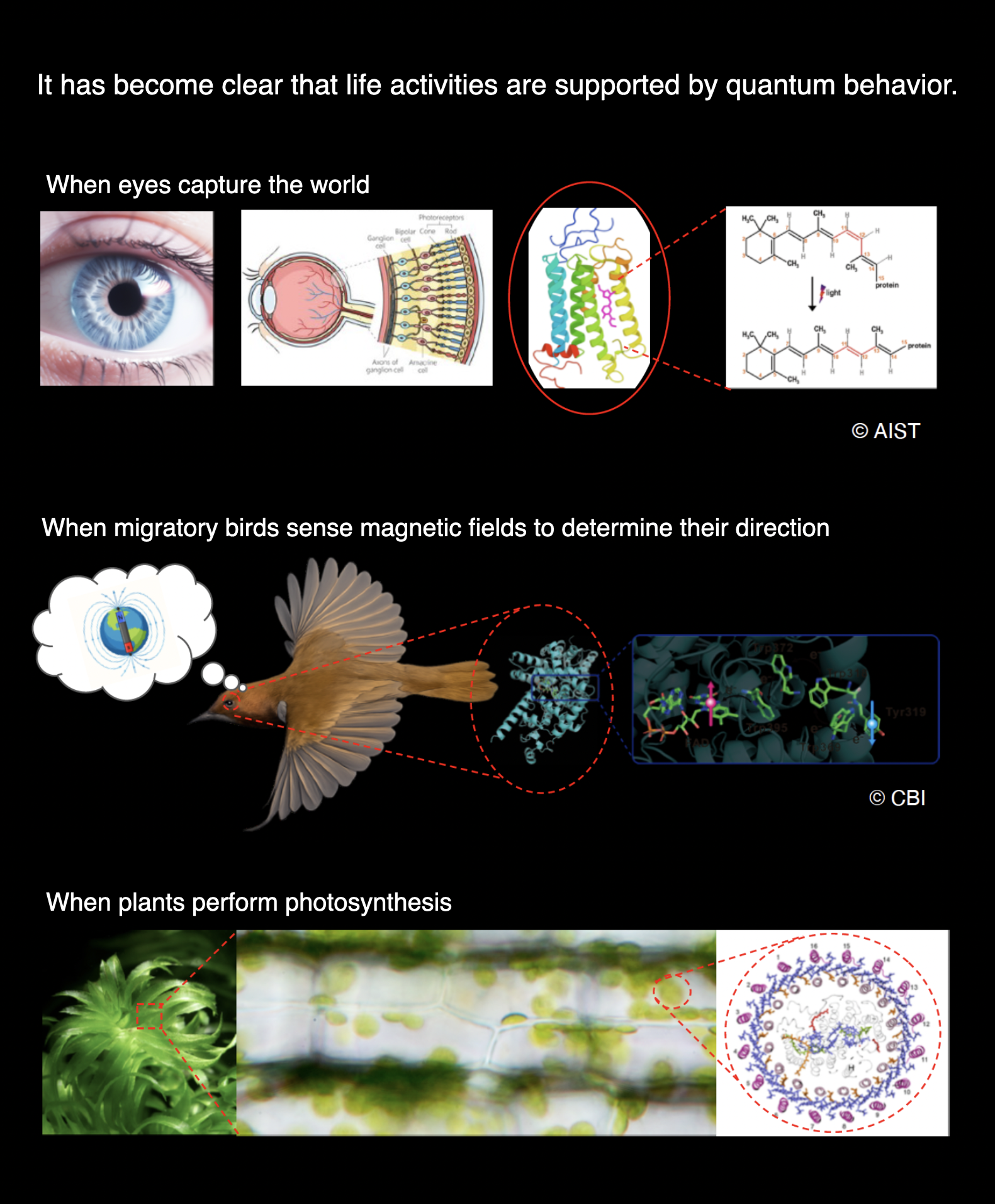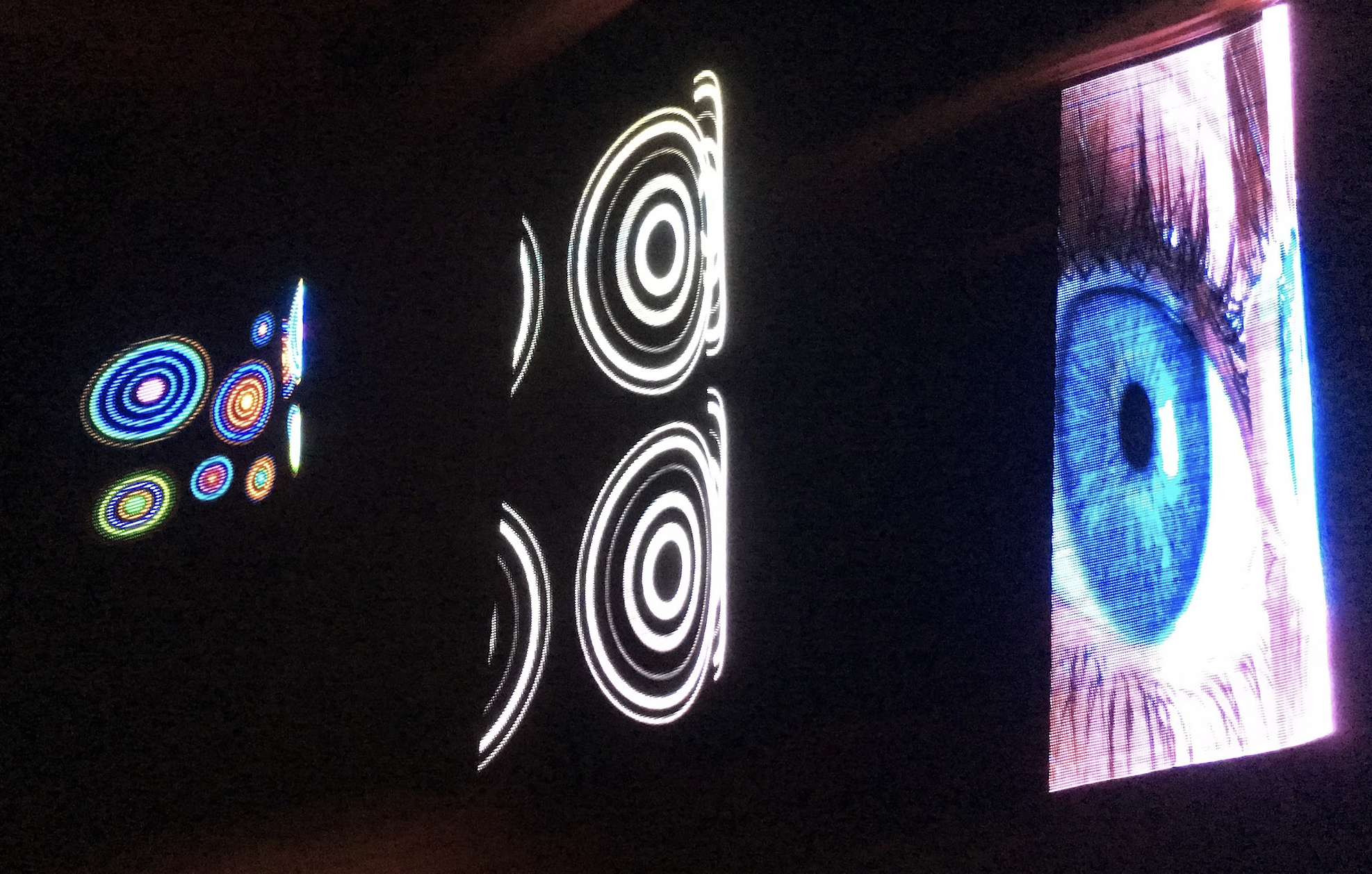HOME |EXHIBITION |STAGE | REPORT
7 Quantum Life: Quantum Phenomena in Living Systems

The Mystery of Life and Quantum
The reason we can see the twinkling of stars in the dark is because our retinas capture even a single photon of light and convert it into information with high efficiency through a quantum light capture mechanism. Migratory birds are able to fly long distances without getting lost because they sense the Earth’s magnetic field, and there is research suggesting that quantum mechanics may be involved in this mechanism. It is thought that electrons in proteins in the birds’ eyes receive energy from photons entering from outside and cause “quantum entanglement,” enabling them to sense the magnetic field.
One of the founders of quantum mechanics, physicist Erwin Schrödinger, was fascinated by the ultimate question, “What is life?” This line of thinking later led to the emergence of molecular biology as a new field of study. Today, it is becoming increasingly clear that when animals detect odors, they may be sensing the quantum vibrations of molecules, and that in plant leaves, the “superposition” of electron waves may be enabling photosynthesis to occur extremely efficiently. Additionally, there is research suggesting that mutations occurring in our DNA may be related to the “tunnel effect,” a quantum phenomenon.
These research efforts are opening up a new field called “quantum life science,” which seeks to elucidate how quantum-level events expand into the vitality of life within the grand cycle of nature, including mountains, oceans, air, and light. Understanding the tiny world of quantum particles is also a key to deciphering the network of life on our blue planet, Earth.

ART
Blinking Quantum Life
Hideyuki Ando + Shigenori Tanaka
2025
This artwork is composed using a special display method called “Saccade-based Display.” It works by rapidly flashing a single column of light during quick eye movements to show two-dimensional images. As if “observing” quantum effects in biological systems*, the observer’s face, eyes, and molecular-level structures governing vision are expressed, representing the quantum interaction between seeing and being seen. While gazing at images that appear only in moments of blinking or turning your head, let us contemplate the act of “observation.”
*In some biological molecules, quantum states of electrons, protons, and spins exist in moments where they spread “wave-like,” and their probability distributions are thought to optimize energy transport and chemical reaction selectivity within living systems. These phenomena are collectively called quantum effects in biological systems.
Cooperation: National Institutes for Quantum Science and Technology (QST)

